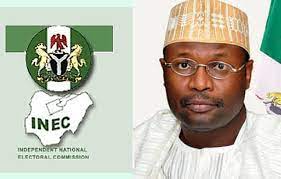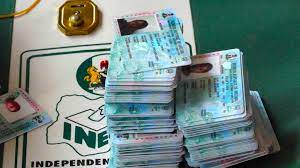Badamasi S. Burji
Leadership can be defined as one’s ability to get others to willingly follow him in the implementation of a policy or a course of action. Every organization needs leaders or a leader at every level. A leader has to have vision, a clear, vivid picture of where to go, and a firm grasp on what success should look like and how it could be achieved.
Moreover, a leader should be able to communicate his vision to those who would implement the policies and he should communicate as clearly and creatively as possible. A good leader should have the discipline to work towards his vision single-mindedly, and also be able to direct his actions and those of his team towards the goal that has been set. In other words, action is the mark of a leader. A leader does not suffer from indecision and what is called “analysis paralysis” but is always doing something, some activity and project, in pursuit of the vision that he has got, and inspiring others to do the same in the interest of the people and the government.
Only few governors in northern Nigeria fall into this category which always reminds us of late General Hassan Usman Katsina, Governor of the defunct Northern Nigeria. In order to bring the 1966 ethnic violence in northern Nigeria to an end, then Lt. Colonel Hassan Katsina held several meetings with the Hausa-Fulani emirs and opinion leaders. In one of such meetings, attended by the Sultan of Sokoto and the Emir of Kano, the traditional rulers were informed that no permanent change in the structure of the state was envisaged by the government without first consulting the people. He assured them that under the unification decree, majority of civil servants would be locally appointed, so that there would be no fear of domination by any external group. At the end of the meeting, the emirs presented a memorandum to Hassan Katsina and issued the following statement:
“All of you are aware of the disturbances that have occurred recently in some areas of this country. Because of this, the Military Governor of the Northern Provinces summoned an emergency meeting of emirs and chiefs in order to afford us an opportunity of discussing the grievances of our people and to give constructive suggestions towards remedying the situation. We have now concluded our discussions and have submitted a memorandum on the grievances of our people and our recommendations on how to bring about a lasting solution for peace in Nigeria as a whole. What remains is for us to give the government time to consider our recommendations. I would now like to appeal to all Nigerians living in the Northern Provinces to remain calm and to assist us in the task of remedying the harm that has been done. I know it is within the power of every one of us to render this assistance by living peacefully with his neighbours and by refraining from doing anything likely to cause disturbance. Disturbance of any nature brings nothing but harm to all. I have already asked all the chiefs who have attended our conference to appeal to their peoples on their return to maintain peace and order and to give the government a chance to consider our recommendations. I trust that all of you will give us the necessary co-operation.” (Quoted in Muffet 1982: 86).
The various Maitatsine riots in northern Nigeria were sponsored by some disgruntled politicians who wanted to actualize their political objectives through creating disorder. Some of the religious fanatics were reported to have boasted of their connection with these politicians.
We keep saying that the most certain test by which we judge whether a country is really free is the amount of security enjoyed by the common man. Democracy is good. No one, and not even the most negative and partisan detractors, can deny that. Unfortunately, what we operate for now is merely its semblance, certainly not the same thing as Lincoln, and indeed enlightened Nigerians, had in mind. That is why it is still necessary that we continue to ask a fellow Nigerian which part of the republic does he come from, what religious faith does he profess and what party does he support before his basic civil liberties are accorded him. The way forward for the democracy project in Nigeria is for us to work harder for the eventual actualization of truly accountable democratic governance in the country by consistently unmasking the charlatans presently debasing the system.
Quite tragically, people are being pushed into the unfortunate, if not dangerous, rationalization that: if this is democracy, then, it was not worth fighting for.



